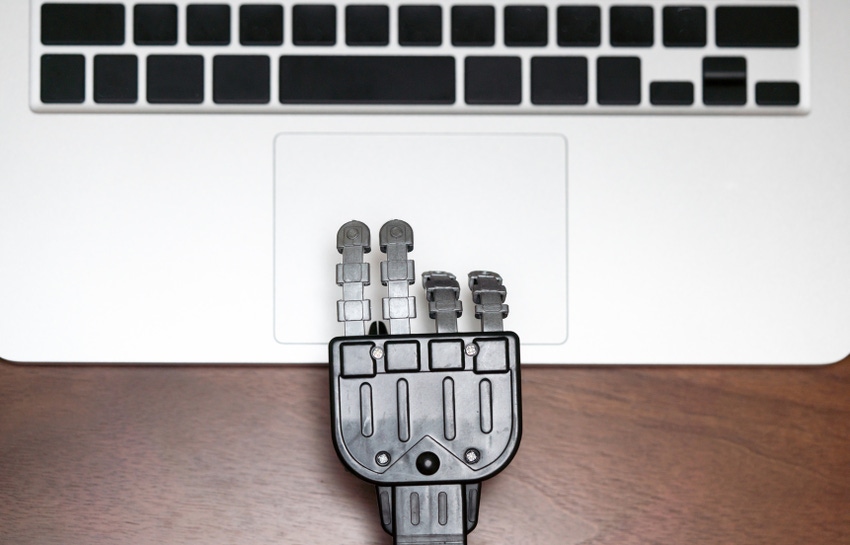Artificial intelligence and automation might well be the future (and the now in some cases) but a study from Cornwell University suggests robots could negatively impact human performance.
March 12, 2019

Artificial intelligence and automation might well be the future (and the now in some cases) but a study from Cornwell University suggests robots could negatively impact human performance.
While it might be widely accepted robotic workers would be more efficient than human counterparts, the dream which has been presented by technologists is an augmented workplace. Humans would benefit from the power of a robot, whether this be a physical or virtual one, with a symbiotic relationship producing a greater output. This is the theory, but the research disputes this concept.
“Think about a cashier working side-by-side with an automatic check-out machine, or someone operating a forklift in a warehouse which also employs delivery robots driving right next to them,” said Guy Hoffman, Assistant Professor in the Sibley School of Mechanical and Aerospace Engineering.
“While it may be tempting to design such robots for optimal productivity, engineers and managers need to take into consideration how the robots’ performance may affect the human workers’ effort and attitudes toward the robot and even toward themselves. Our research is the first that specifically sheds light on these effects.”
The test pinned university students against a robot in a relatively simple test. Both parties were given random text, asked to count the number of ‘G’s and then deposit the text in a relevant bin, market with a number to denote the number of ‘G’s. Depending on the performance of the human compared to the robot, the participants were placed in a lottery at the end of each round with a monetary reward. The interesting part of the test was the competence of the robot, which was varied throughout the rounds.
What the research found could have quite an impact on how robotics, artificial intelligence and automation are applied in the work place. The researchers found that as the robot performed better, people rated its competence higher, its likability lower and their own competence lower.
In short, human workers were demoralised when effective and efficient automation was introduced.
While this might all seem very obvious, the long-term promise of robotics, artificial intelligence and automation could be completely undermined. Optimists in the industry have promised the application of these technologies would be the enhance human performance, not replace it, however, it this introduction has the power to degrade human performance you have to wonder what the point would actually be.
What is worth noting is that this research is not directly applicable to most of the usecases which have been discussed, but the learnings should be factored in to any initiatives. In most cases, the technology would perform a different role to the human, whereas this experiment from Cornell University pitted human versus machine. However, such is the desire for success and credibility from people in general, they will naturally compare themselves to robot performance in the first instance, even if there is no direct crossover.
In the telco world, the main applications to date have been in network automation and customer services, the latter of which is where the risk could become more apparent. There is a feeling customer service agents will eventually be entirely taken over by robotics, artificial intelligence and automation, therefore in the intervening period the risk of poor performance is relevant.
That said, irrelevant as to where robotics, artificial intelligence and automation are being applied to the business, this is certainly material worth thinking about. If the overall objective is to improve the end product and performance, the moral of human workers will almost certainly have to be taken into account. That is, of course, unless we are all doomed to be replaced by robots entirely…
About the Author(s)
You May Also Like








.png?width=300&auto=webp&quality=80&disable=upscale)


_1.jpg?width=300&auto=webp&quality=80&disable=upscale)


.png?width=800&auto=webp&quality=80&disable=upscale)